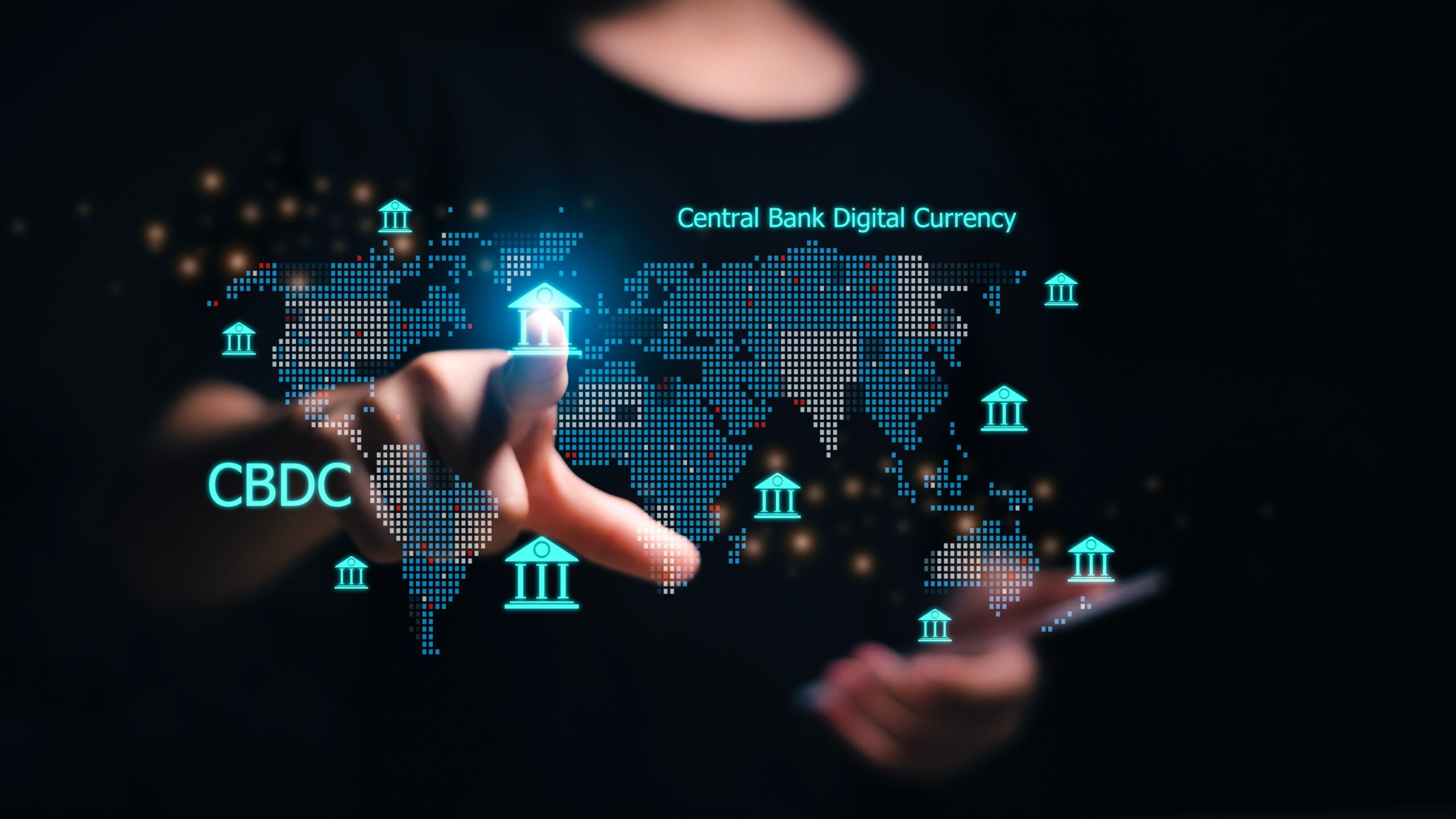- Gamification is a smart way to draw people in
- Fortune City: log your daily expenditures and build a virtual town
- eToro helps you master the markets through gamified investing
- Saving, spending, scoring: Monobank’s fresh take on finance
Gamification is turning the financial world on its head. It’s a simple idea: take the fun and addictive elements from games and apply them to financial services. By doing this, banks and other financial service providers are making it easier and more enjoyable for people to save money, learn about investing, and manage their finances. Think apps that invest your spare change from everyday purchases into a portfolio, or tools that make trading stocks as simple as liking a photo on Instagram, and even reward you with free stocks for bringing in friends. The numbers show that this isn’t just a passing trend. According to a report by MarketsandMarkets, the gamification market — which was valued at $9.1 billion in 2020 — could triple by 2025. Why? Because our phones, social media, and even our refrigerators are getting smarter and more connected. This makes it easier for finance apps to become a part of our daily routine. It’s not all fun and games, however. Critics warn that making finance too game-like might encourage people to take unnecessary risks, like trading too often or piling up debt. Plus, there’s a chance that these apps might oversimplify things, making us forget that we’re dealing with real money. Despite these concerns, it’s clear that gamification is making a splash in finance. It’s part of a bigger blend of tech and finance that’s changing everything from the way we save to the way we play. So, let’s take a closer look at how gamification is making money matters not just easier, but maybe even a little bit fun.
Gamification in finance is more than just fun and games; it’s about creating a win-win situation where users are empowered to take control of their finances in a way that feels rewarding — and finance companies cultivate a loyal and financially savvy user base.
Gamification is a smart way to draw people in
Adding a touch of gaming to financial apps isn’t just a gimmick — it’s a smart way to draw people in and keep them coming back. We’re all hardwired to enjoy games; it’s just how our brains tick. So when a finance app has features that tap into our love for challenges and rewards, users aren’t just checking their finances, they’re on a quest to ‘beat the game.’ And the more they play, the more they’ll stick around, making the app a regular part of their digital life. But it doesn’t end there. Gamification can subtly guide users toward better financial behaviours without the chore-like feeling that often comes with budgeting or saving. Much like a fitness app that encourages you to take a few more steps, a finance app can motivate people to save a little more or to understand where their money is going. By transforming financial education into a game, users can earn ‘achievements’ for completing lessons or improving their spending habits. Of course, finance companies also benefit immensely from this playful approach. Engaged users are more likely to explore additional services and become advocates for the app, bringing in new customers organically. Also, the data gathered from user interactions can help companies tailor their services to better meet their customers’ needs, creating a more personalised and satisfying experience. Ultimately, gamification in finance is more than just fun and games; it’s about creating a win-win situation where users are empowered to take control of their finances in a way that feels rewarding — and finance companies cultivate a loyal and financially savvy user base.
Fortune City: log your daily expenditures and build a virtual town
Amidst a plethora of budget trackers and financial apps, Fortune City stands out with its inventive approach to managing personal finances. It’s not just another simulation game; it’s a clever fusion of a budgeting tool and a virtual town-building adventure. The game’s premise is straightforward: as you log your expenses, you create buildings in your very own digital metropolis. Your weekly grocery shopping trip could result in a quaint virtual supermarket appearing, or logging a gym subscription might build a virtual fitness centre. This approach encourages users to log not only their earnings but each expense and build a thriving virtual town. This isn’t merely for aesthetics; your financial entries act as the workforce of your city. You assign citizens to these buildings, and they start generating coins, acting as a virtual currency within the game. These coins can be spent to evolve your town, from upgrading existing structures to merging identical buildings to create more impressive landmarks, enhancing your virtual town’s skyline.
While the gaming element is engaging, Fortune City holds its own as a financial app. It provides detailed categorisation of spending, differentiating between various payment methods, allowing users to pinpoint exactly where their money goes. The app also offers an analytics dashboard, where spending patterns are visualised through colourful charts and graphics. Users can track their financial activities over different periods, helping them recognise and understand their spending habits. Moreover, the gamified element of city-building acts as an incentive for regular input of financial data. This encourages a consistent habit of expense tracking, potentially leading users to be more conscious of their spending. By making the mundane task of financial recording engaging, Fortune City not only aims to entertain but also to instil better financial discipline, marrying the concept of play with practical money management. Fortune City encourages you to sign up and save your progress as you build your bustling town. By creating an account, you’ll also join a community of fellow city planners where you can connect, share tips, and invite mates to play along.
eToro helps you master the markets through gamified investing
In the bustling realm of online investment platforms, Israeli social trading and multi-asset brokerage company eToro has emerged as a trailblazer, seamlessly blending the essence of social networking with the seriousness of trading. This innovative approach of the eToro app not only democratises the investment landscape but also introduces an element of gamification that makes financial markets accessible and engaging to the masses. With its intuitive News Feed, eToro creates a vibrant community where enthusiasts and experts alike share insights, strategies, and stock favourites. This interactive forum serves as a dynamic learning environment, encouraging friendly rivalry as investors strive to emulate the platform’s high fliers. But eToro’s true game-changer lies in its pioneering CopyTrader feature. It’s a golden opportunity for novices to learn from seasoned pros by mirroring their trades, turning investment into a collaborative journey. This not only levels the playing field but also recognises and rewards influential traders when others replicate their strategies, fostering a sense of mentorship within the community.
But eToro doesn’t stop there; it adds another layer to the user experience with the Trading Knowledge Assessment. This engaging quiz playfully evaluates a user’s market savvy, ensuring that only those equipped with the necessary know-how can unlock the full suite of trading tools. This clever move serves dual purposes: it gamifies the learning curve and safeguards beginners from biting off more than they can chew. Lastly, eToro’s virtual trading rounds off the gamified experience. This risk-free simulation of the markets allows rookies to cut their teeth in the world of investing without the threat of financial loss. This feature is a testament to eToro’s commitment to education and safe trading. In a world where trading apps like Robinhood dominate, eToro’s fusion of social interaction and gamification not only distinguishes it but also establishes it as a front-runner in the digital trading arena. With these strategies, eToro doesn’t just facilitate investment; it turns it into a captivating experience that educates and entertains its users. Beginners and experts alike will find eToro’s app an inviting gateway to the world of trading, offering straightforward access to a broad spectrum of financial instruments. eToro made headlines earlier this year when it partnered with Twitter to enable its users to view market charts and access real-time information about cryptocurrencies, stocks, and other financial assets.
Saving, spending, scoring: Monobank’s fresh take on finance
In the often-grey world of banking, Monobank is infusing a dash of colour with its novel approach to digital banking. Imagine logging in to handle your finances and being greeted by a friendly feline figure — this is precisely the user experience that Monobank offers. By utilising gamification and the cute cat appearing throughout the app, this Ukrainian virtual bank transforms the mundane task of managing money into an engaging and, dare we say, enjoyable activity. Gone are the days when depositing money or opening an account was a mere tick on your to-do list. With Monobank, these actions form part of a larger, more playful financial journey. As users navigate through their banking tasks, they’re met with the possibility of earning achievements. It’s a system that encourages involvement through rewards that range from virtual badges to tangible benefits. Whether it’s making mindful spending choices in particular categories, venturing into the world of international transactions, or simply splitting a dinner bill, Monobank turns each of these into a step towards an achievement. This clever blend of finance and fun does more than just brighten up the banking process. It’s proving to be a strategic win for Monobank, as it fosters a deeper relationship between the bank and its customers. By integrating the appeal of gaming into their app, they’ve tapped into a powerful motivator that keeps users coming back for more. As customers interact with the app and collect their badges, there’s a sense of progress and accomplishment — emotions not traditionally associated with banking. It’s no surprise that this innovative approach is reaping benefits for Monobank. In an era where app retention is as crucial as the services offered, the bank’s gamification strategy is not just a quirky feature — it’s a potent tool for building loyalty and satisfaction. Monobank isn’t just a bank; it’s a pioneer in the digital banking space, proving that with the right approach, even the most routine financial management can be an adventure.
The gamified future of finance promises a democratised landscape where every individual, regardless of their economic background, has the opportunity to learn, engage, and grow their financial knowledge.
In closing
We’re approaching an era where the line between entertainment and everyday tasks is increasingly blurred. The integration of game mechanics into financial apps and services is a reimagining of an industry that, for too long, has been steeped in rigidity and inaccessibility. By borrowing elements from the gaming world, finance apps transform the daunting task of money management into an engaging experience. With each swipe or click, users are not just making transactions or checking balances; they’re embarking on a journey towards financial literacy and independence. As this article has explored, from the whimsical cityscapes of Fortune City to the strategic trades of eToro, or the playful interface of Monobank, each of these tools is a forerunner in a burgeoning movement that redefines user engagement and education. The gamified future of finance promises a democratised landscape where every individual, regardless of their economic background, has the opportunity to learn, engage, and grow their financial knowledge. It’s a future where the intimidation of financial jargon and the complexity of investment strategies are distilled into a universally understood language of play. As we approach this gamified future, it’s essential, however, to ensure that gamification does not trivialise the importance of financial decisions, but that it empowers individuals to make them with confidence and clarity. It is an exciting time for finance; the potential for a financially literate and engaged global population has never been more within reach.




